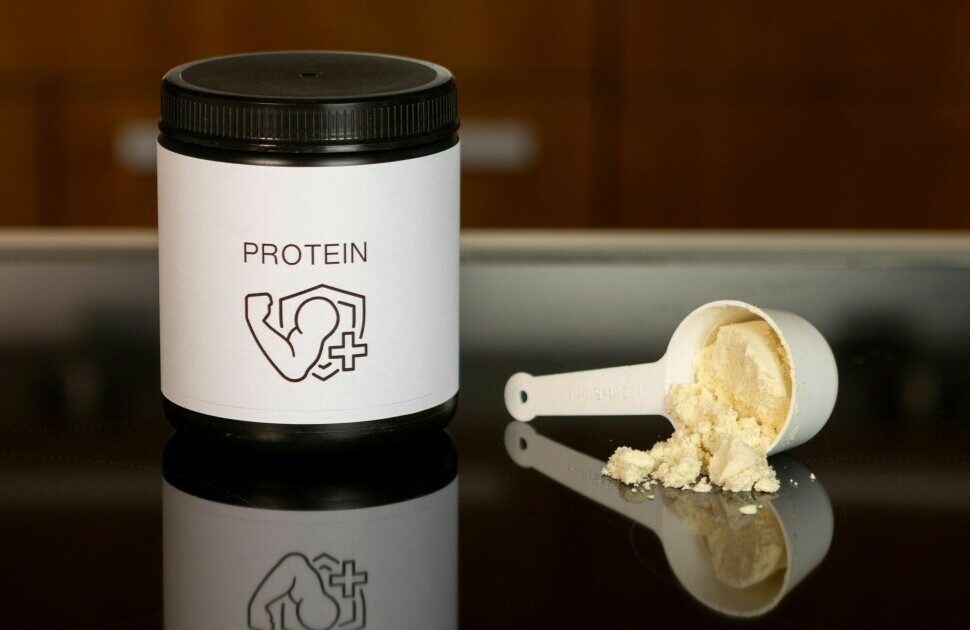Physical Address
304 North Cardinal St.
Dorchester Center, MA 02124
Physical Address
304 North Cardinal St.
Dorchester Center, MA 02124

I’m going to help you understand the intricate details of weight loss supplements for women. I want to emphasize that every weight loss journey is personal, and for women, this can come with specific challenges such as hormonal changes and different body compositions than men.
You’re going to find out about how supplements can play a supportive role in your overall health and weight loss goals. They can be a valuable addition, but it’s critical to remember they’re only one piece of the puzzle. Your expectations need to be grounded in the reality that supplements work best when combined with a balanced diet and regular exercise.
Don’t worry too much about the flood of options on the market because I’m here to guide you through making informed choices. However, it’s imperative to consult with a healthcare professional before starting any new supplement regimen to ensure it aligns with your personal health needs.
This isn’t just a discussion about what supplements can do – it’s also about how you can integrate them responsibly into your lifestyle for the best possible outcomes in your weight loss journey.
If you’re considering weight loss supplements, it’s crucial to make evidence-based choices to ensure safety and effectiveness. In this field, the science should be both your map and your compass.
Let’s start with Green Tea Extract. It’s well-known, not just for its potential to enhance weight loss by increasing metabolism but also for its antioxidant properties. Studies have commonly associated it with increased fat burning during exercise.
Conjugated Linoleic Acid (CLA) is another contender. It naturally occurs in dairy and meat and is popular for its fat-burning claims. However, I want to be transparent here: results can be modest, and consistent long-term benefits still need stronger evidence.

Moving on, we have Garcinia Cambogia, a tropical fruit extract that has generated buzz for its role in appetite suppression. The active component, hydroxycitric acid, might be beneficial, but it’s not a silver bullet – consistency and supporting lifestyle changes are key.

Then there’s Glucomannan, a dietary fiber that can help with feeling full. When taken before meals, it can lead to slightly lower food intake. I stress ‘slightly’ because while it sounds promising, it won’t work miracles without a proper diet.

And we can’t forget about caffeine – the familiar morning wake-up call. It’s not just for alertness; caffeine can accelerate fat burning and improve exercise performance, albeit temporarily.

Lastly, protein powders have their place in the weight loss arsenal. They can help preserve muscle mass during weight loss and keep you feeling fuller, longer. Choosing the right type of protein is essential, and it’s not just about shakes; integrating protein into your meals is also vital.

Assessing your individual health needs and goals is crucial before adding any supplement to your regimen. Start by defining your objectives and understanding what you specifically need from a weight loss supplement. Are you looking for appetite suppression, metabolic support, or something else?
Reading labels and understanding dosages comes next. You’ll want to look for transparency in labeling – clear information on ingredients, dosages, and recommended usage. Be cautious of proprietary blends that don’t disclose their exact components or amounts.
The importance of quality cannot be overstressed. Opt for supplements that have undergone third-party testing for purity and potency. Certifications from organizations such as NSF International or the US Pharmacopeia can provide assurance that the product meets certain standards.
Keep in mind potential interactions with medications and other supplements you’re taking. Some weight loss supplements can have adverse effects when combined with certain pharmaceuticals. Always discuss with a healthcare provider to prevent any harmful interactions.
Remember that supplements can vary widely in terms of ingredients and effectiveness. Choose something that resonates with you and aligns with your overall health strategy. You can always adjust your approach down the road, as you monitor your progress and consult with healthcare professionals.

A supplement alone isn’t a silver bullet for weight loss. It’s essential to integrate these aids within the context of a broader lifestyle. Diet and exercise reign supreme in the realm of effective, sustainable weight loss. Opt for a nutrition plan rich in veggies, lean proteins, and whole grains. Pair this with consistent exercise, which doesn’t have to be grueling; find an activity you enjoy, and it becomes less of a chore.
Stress plays a not-so-surprising role in weight management. Chronic stress can lead to comfort eating and pile on the pounds. Managing your stress levels through techniques such as yoga, meditation, or even simple breathing exercises can help keep your appetite in check and your mind focused.
Don’t underestimate the power of a good night’s sleep. Sleep deprivation can mess with the hormones that control appetite, leading you to overeat. By ensuring you get 7-9 hours of quality sleep each night, you’re supporting your weight loss goals from the comfort of your bed.
Finally, surrounding yourself with a supportive community can significantly impact your weight loss journey. Whether it’s a fitness group, an online community, or friends and family, building a network that encourages and motivates can make all the difference.
Remember, your first attempt at weight loss doesn’t need to be your last. Adjust your course as needed and never strive for perfection, but rather progress. Ideally, by embracing a holistic approach to weight loss, your journey will be healthier, happier, and far more sustainable.
Thank you the a well written article. I have recommended the article to my wife who is a fan of weight loss.
Please help by answering a few questions?
You mentioned that every weight loss journey is personal. What are some specific challenges women might face in their weight loss journeys due to hormonal changes and different body compositions compared to men?
While supplements can play a supportive role, how significant is their impact compared to a balanced diet and regular exercise? Are there any cases where supplements have made a notable difference in someone’s weight loss journey?
Lastly
Can you provide more insights into the importance of consulting with a healthcare professional before starting any new supplement regimen? What are some potential risks of not doing so?
Hi there,
Thank you for recommending the article to your wife! I’m glad you found it helpful. Here are answers to your questions:
Challenges Women Face:
Hormonal Changes: Hormonal fluctuations during menstrual cycles, pregnancy, and menopause can affect metabolism and appetite, making weight loss more challenging.Body Composition: Women generally have higher body fat percentages than men, which can affect how they lose weight and where they lose it from.
Impact of Supplements:
Significance: While supplements can aid weight loss, their impact is often less significant than a balanced diet and regular exercise. The foundation of weight loss should always be healthy eating and physical activity.Notable Differences: In some cases, supplements like green tea extract or glucomannan have helped individuals lose weight, especially when combined with lifestyle changes.
Consulting Healthcare Professionals:
Importance: It’s crucial to consult with a healthcare professional to ensure that supplements are safe and appropriate for your individual health needs.Risks of Not Consulting: Potential risks include adverse reactions, interactions with medications, and exacerbating underlying health conditions.
I hope this helps! Feel free to reach out with any more questions.
Best,
Samuel
This is a fantastic article, Samuel! Your thorough breakdown of the top weight loss supplements for women is both informative and accessible. I appreciate how you emphasize the importance of integrating these supplements within a holistic lifestyle approach, highlighting diet, exercise, and stress management. Your advice on consulting healthcare professionals before starting any new supplement regimen is also crucial for ensuring safety and effectiveness.
One question: how do you recommend tracking progress when incorporating these supplements into a weight loss routine? Are there specific metrics or methods that can help women monitor their effectiveness? Thank you!
– Scott
Hi Scott,
Thank you for your kind words! I’m glad you found the article informative and accessible. Integrating weight loss supplements into a holistic lifestyle approach is indeed crucial, and I’m happy to hear that the emphasis on consulting healthcare professionals resonated with you.
Tracking progress when incorporating weight loss supplements into your routine is essential for understanding their effectiveness and making any necessary adjustments. Here are some metrics and methods that can help monitor progress effectively:
1. Body Weight and Measurements
Weekly Weigh-Ins: Track your weight at the same time each week to monitor changes. Daily fluctuations are normal, so weekly check-ins provide a clearer picture.Body Measurements: Measure your waist, hips, thighs, and other areas of concern. Sometimes, body composition changes even when the scale doesn’t show significant weight loss.
2. Body Composition
Body Fat Percentage: Tools like bioelectrical impedance scales, skinfold calipers, or professional body composition analysis can help track changes in body fat percentage.Muscle Mass: It’s important to monitor muscle mass, as losing muscle can slow metabolism. Aim to maintain or increase muscle while losing fat.
3. Diet and Nutrition
Food Diary: Keep a detailed log of your daily food intake, including portion sizes and macronutrient breakdown (proteins, fats, carbs). Apps like MyFitnessPal can be helpful.Caloric Intake: Ensure you’re in a caloric deficit if weight loss is the goal. Adjust your intake based on progress and activity levels.
4. Physical Activity
Exercise Log: Track the type, duration, and intensity of your workouts. Consistency in exercise contributes significantly to weight loss and overall health.Steps: Use a pedometer or fitness tracker to monitor daily steps. Aim for a target like 10,000 steps per day.
5. Health Metrics
Blood Pressure and Heart Rate: Regularly monitor these to ensure your overall health is improving alongside weight loss.Blood Tests: Periodic blood tests can track cholesterol levels, blood sugar, and other markers impacted by weight and lifestyle changes.
6. Personal Goals and Well-being
Goal Setting: Set specific, measurable, attainable, relevant, and time-bound (SMART) goals. Adjust them as you progress.Energy Levels and Mood: Note changes in your energy levels, sleep quality, and overall mood. Weight loss should contribute positively to your well-being.
7. Photos
Progress Photos: Take photos at regular intervals (e.g., monthly). Visual comparisons can be motivating and reveal changes that scales and measurements might miss.
Conclusion
Remember, tracking progress is a personal journey, and what works best can vary from person to person. Regularly reviewing your progress with a healthcare professional can help you make informed adjustments to your weight loss plan.
Thank you again for your thoughtful question, Scott! Wishing you all the best on your health journey.
Best regards,
Samuel